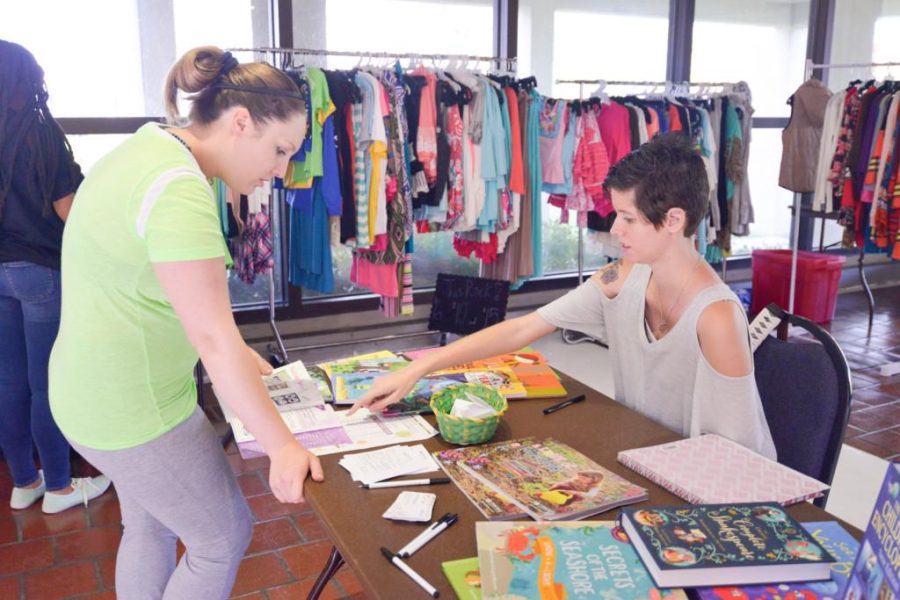By Joel Polarek, Contributing writer
Murray State students Sara Schacht and Tristan Ritter raised $675 by organizing West Kentucky Mentoring’s spring festival for their nonprofit leadership studies course.
Booths with clothing, bags, soaps, makeups, essential oils and crafts lined the Curris Center dance lounge walls. Vendors talked about their wares while a few potential buyers milled about the floor.
One of the vendors, Heidi Reno from Clarksville, Tennessee, was right in the back. She travels to about three events a month to sell her Perfectly Posh products.
“I saw an advertisement that vendors were needed, so I decided to give it a shot,” Reno said.
Vendors paid a small entrance fee to reserve a spot at the festival, but Reno said she enjoys helping good causes.
“I like giving back to the community, so if it’s a nonprofit event, I try to go,” Reno said.
Schacht and Ritter stationed themselves at the entrance to hand out raffle tickets and collect donations for the mentoring program.
“West Kentucky Mentoring used to be Big Brothers Big Sisters here in Murray, but they lost their corporate funding,” Schacht said. “They only have one paid staff member, and that’s the executive director, Suzy [Cook].”
Schacht said that the mentoring program is sustained primarily through donations and volunteer work. They both said that West Kentucky Mentoring is important in the lives of the young people enrolled.
“We actually did our mock grant proposal for our class for West Kentucky Mentoring,” Schacht said. “One of the big problems that [Suzy Cook] discussed was that [the students] have a lack of positive relationships with other people, so that’s where they bring in the mentors and establish those positive personal relationships.”
In Schacht and Ritter’s proposal, students are expected to see an increase in academic scores, establish more long term and short term goals, and decrease risky behavior. The program pairs college students with grade-level students aged 5 to 18.
The two meet occasionally to work on homework or just to hang out. Schacht said the program mirrors Big Brothers Big Sisters, just on a smaller, more local scale.
“Having a good mentor in your life, or having that somebody you can look up to, is extremely important. Having my big sister to look up to helped me so much,” Ritter said. “Some of these kids don’t have that, so they need that person in their life.”




























































































